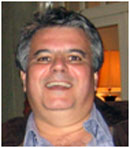
For a long time scientists have been committed to describe and organize information obtained by observations from the field. The ideas regarding experimentation and other investigation strategies have been explored and evolved into different scientific areas, including physics, agriculture, medicine, engineering and social sciences among others. We can observe similar behavior in Software Engineering. The use of different investigation strategies has become substantially more prevalent since the 1990s and is now considered a fundamental requirement of high quality research in the field.
Software engineers have intensively worked to understand the application and evolution of software processes and technologies by applying the scientific method to support their researches. Nowadays, primary and secondary studies have demonstrated to be a need for the evolution of the field. In fact, experimentation already represents a cardinal tool to support the transference of software technologies to the industry; improve software processes and evidence behaviors in Software Engineering.
This has also led to improvements in the quality and rigor in experimental software engineering research. The ISERN community, the ESEM conference and the Empirical Software Engineering Journal have been instrumental in advancing the standards in our area.
Doctoral students whose doctoral research involves a substantial investigative approach are encouraged to submit a research plan for the symposium. Investigation strategies in the research can include primary (experiments, case studies, surveys), secondary (systematic reviews, aggregation, synthesis, meta-analysis) and data collection techniques, including a combination of them.
The objective of the symposium is to provide young researchers with the opportunity to present their work to, and receive valuable feedback from the empirical software engineering community. Some of the most experienced members of that community will serve as the symposium advisors and provide feedback to participating doctoral students. In addition, the symposium intends to facilitate the exchange of ideas among young researchers. Accepted papers will be published on the ESEM conference website. There will be an award for the best IDoESE research proposal based on the revised final papers.
Submissions can be done through https://www.easychair.org/account/signin.cgi?timeout=1;conf=idoese2011. The IDoESE 2011 chair is Prof. Guilherme Horta Travassos, COPPE/UFRJ, Brazil.


